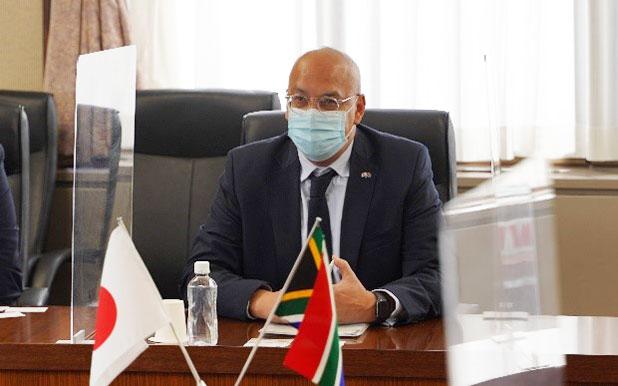[ad_1]
The government on Tuesday retained its view that the domestic economy remains on a recovery track but warns of downside risks from a recent surge in infections with the omicron variant of the coronavirus.
The Japanese economy “shows movements of picking up recently as the severe situation (of economic activities) due to the novel coronavirus is gradually easing,” the Cabinet Office said in its monthly assessment report for January. In December the outlook was upgraded for the first time in 17 months.
But the report said close attention should be paid to a potential “further increase in downside risks” from a resurgence of new coronavirus cases, supply-side constraints and higher raw material prices.
The office had also cautioned about a supply crunch and rising prices in the previous report but the warning of the downside risks from the virus situation was the first since September, when the previous state of emergency over the pandemic was still in effect in some prefectures including Tokyo. It was completely lifted nationwide on Oct. 1 following a decline in virus cases.
The office maintained its evaluation for private consumption, saying it is “picking up recently,” after upgrading it for the second straight month in December.
A government official said at a news briefing that the recent virus spread has not had a major impact yet on consumer spending.
“But we need to keep monitoring its possible impact on the economy,” the official said.
The latest economic assessment comes as the nation has been seeing a rapid increase in daily virus cases close to the highest level since the year-end and New Year’s holidays on the back of the spread of the highly contagious omicron variant.
The government has yet to issue a fresh state of emergency but three prefectures were placed under a quasi-state of emergency earlier this month and more are expected to be added soon.
The measure in expanded areas could further dampen consumption, with more dining establishments becoming subject to restrictions such as shorter business hours and a ban on serving alcohol.
By component, the January report revised upward its view on industrial production for the first time in 14 months, saying that it “shows movements of picking up.” The previous assessment said that it “appears to be pausing for picking up.”
The official said that the revision reflects a rebound in auto output from a slump caused by a global semiconductor shortage and a disruption in parts supplies from Southeast Asian countries due to restrictions on economic activities there.
Assessments of other major components were unchanged. The office said that exports are “almost flat,” and business investment “appears to be pausing for picking up.”
In a time of both misinformation and too much information, quality journalism is more crucial than ever.
By subscribing, you can help us get the story right.
SUBSCRIBE NOW
[ad_2]
Source link

















